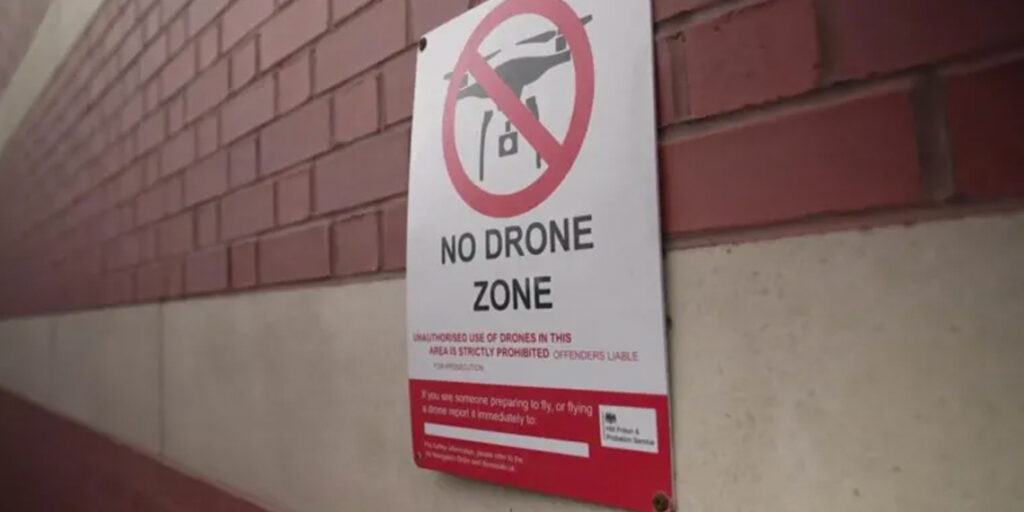The use of drones to smuggle contraband into two of England’s highest security prisons has been deemed a significant national security threat by the chief inspector of prisons, Charlie Taylor.
Regular drone deliveries at HMP Manchester and HMP Long Lartin in Worcestershire have raised concerns about the potential smuggling of firearms into facilities housing some of the country’s most dangerous inmates, including terrorists, murderers, and organised crime leaders.
Speaking to BBC News, Mr Taylor warned that prison authorities have effectively “ceded the airspace” over these maximum-security institutions, creating heightened risks of armed violence, escapes, and hostage situations.
Damning Reports on Security Failings
Recent inspection reports revealed serious lapses in security and safety at both prisons. Organised crime gangs have been using drones to deliver weapons, drugs, and mobile phones to inmates.
Contraband payloads of up to 3lb (1.3kg) have included items such as “zombie knives,” with concerns that firearms could be next.
“This is a threat to national security,” said Mr Taylor. “The risk of serious weapons entering these prisons increases the likelihood of inmates committing violent acts, escaping, or instigating hostage situations.”
Organised Crime Exploits Security Gaps
Gangs have employed sophisticated methods to orchestrate drone deliveries, including GPS apps used by inmates to guide packages to precise locations.
In some cases, contraband was disguised in black plastic bags, indistinguishable from cell waste, allowing inmates to retrieve them under the guise of litter collection. At Long Lartin, items were also hidden in balls of grass to blend with the environment.
Failures in CCTV systems and anti-drone netting at both prisons have exacerbated the issue. At HMP Manchester, damaged £5,000 cell windows have been exploited, with drones regularly spotted circling the facility at night.
Urgent Action Required
An urgent notification issued in October highlighted HMP Manchester as one of the most violent prisons in the country, prompting emergency measures from the Ministry of Justice.
A spokesperson stated, “This Government inherited prisons in crisis. We are addressing the situation with investments in security and maintenance, collaborating with police and security services to combat organised crime, and increasing prison capacity to house dangerous offenders.”
The ministry has already implemented improvements, including upgraded CCTV and enhanced anti-drone defences. However, Mr Taylor emphasised the need for robust, ongoing efforts to counter the organised crime networks exploiting these vulnerabilities.
This growing threat highlights the necessity of immediate and sustained intervention to prevent contraband and weapons from jeopardising the safety and security of the UK’s most secure prison facilities.


